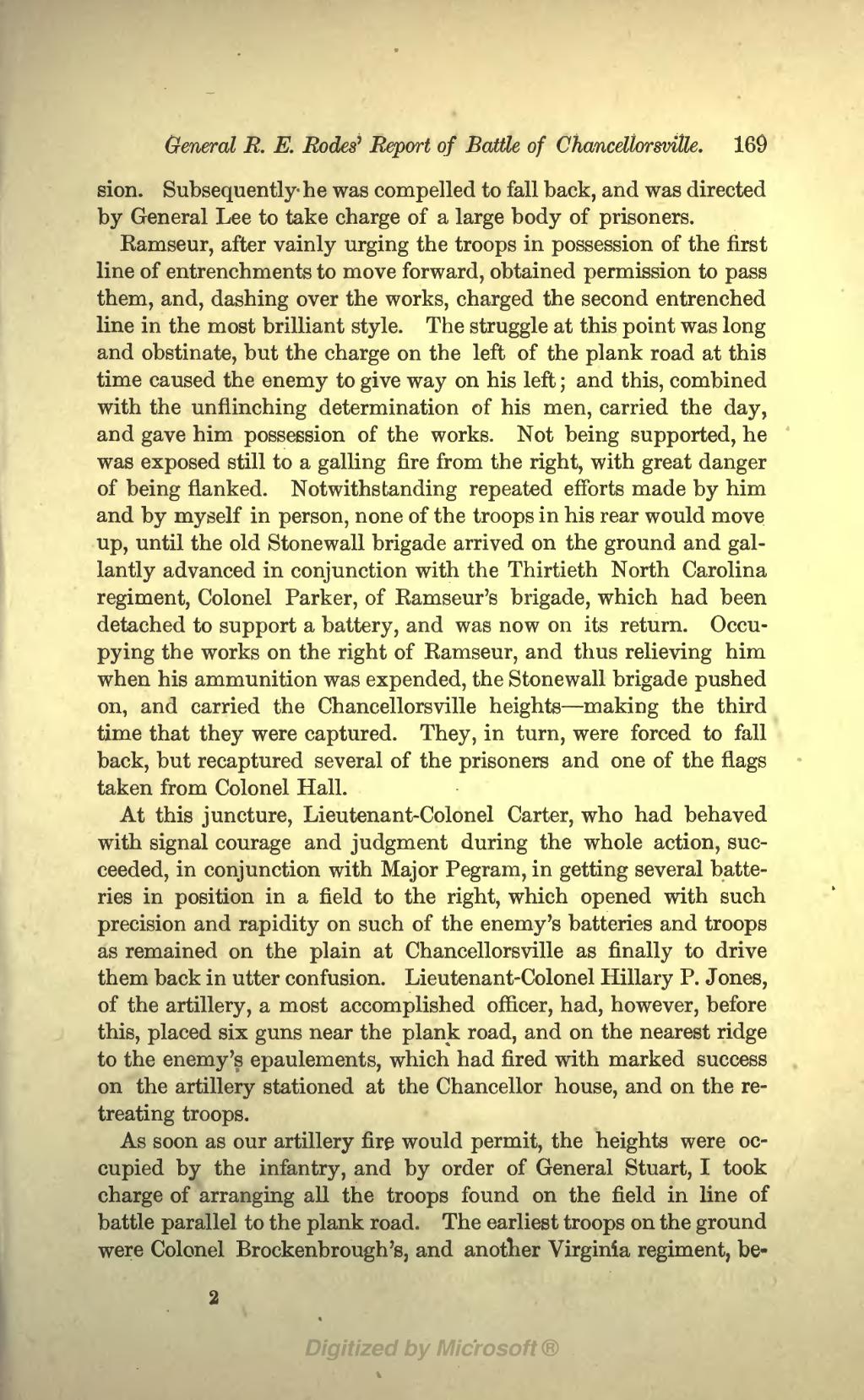sion. Subsequently he was compelled to fall back, and was directed by General Lee to take charge of a large body of prisoners.
Ramseur, after vainly urging the troops in possession of the first line of entrenchments to move forward, obtained permission to pass them, and, dashing over the works, charged the second entrenched line in the most brilliant style. The struggle at this point was long and obstinate, but the charge on the left of the plank road at this time caused the enemy to give way on his left: and this, combined with the unflinching determination of his men, carried the day, and gave him possession of the works. Not being supported, he was exposed still to a galling fire from the right, with great danger of being flanked. Notwithstanding repeated efforts made by him and by myself in person, none of the troops in his rear would move up, until the old Stonewall brigade arrived on the ground and gallantly advanced in conjunction with the Thirtieth North Carolina regiment, Colonel Parker, of Ramseur's brigade, which had been detached to support a battery, and was now on its return. Occupying the works on the right of Ramseur, and thus relieving him when his ammunition was expended, the Stonewall brigade pushed on, and carried the Chancellorsville heights—making the third time that they were captured. They, in turn, were forced to fall back, but recaptured several of the prisoners and one of the flags taken from Colonel Hall.
At this juncture, Lieutenant-Colonel Carter, who had behaved with signal courage and judgment during the whole action, succeeded, in conjunction with Major Pegram, in getting several batteries in position in a field to the right, which opened with such precision and rapidity on such of the enemy's batteries and troops as remained on the plain at Chancellorsville as finally to drive them back in utter confusion. Lieutenant-Colonel Hillary P. Jones, of the artillery, a most accomplished officer, had, however, before this, placed six guns near the plank road, and on the nearest ridge to the enemy's epaulements, which had fired with marked success on the artillery stationed at the Chancellor house, and on the retreating troops.
As soon as our artillery fire would permit, the heights were occupied by the infantry, and by order of General Stuart, I took charge of arranging all the troops found on the field in line of battle parallel to the plank road. The earliest troops on the ground were Colonel Brockenbrough's, and another Virginia regiment, be-
